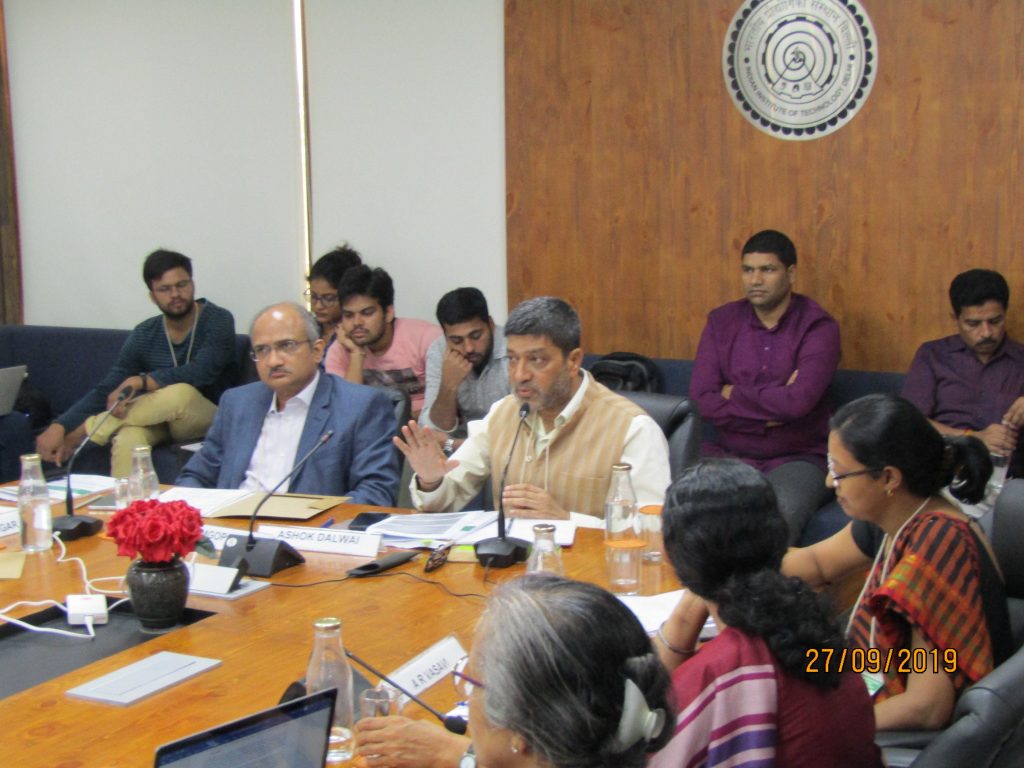A shift in rural policy is needed due to climate challenge: experts at IIT Delhi
In the national conference thee experts came out with four messages.

- Country:
- India
The Network of Rural and Agrarian Studies (NRAS) organised a conference, titled ‘Beyond Productivity and Populism: Reimagining India’s Agricultural and Rural Policies’ at IIT Delhi through September 26-28, 2019 with the realisation that the production paradigm of agriculture within the current growth model has run out of steam and we need to look beyond it and re-imagine our policies.
NRAS is an all-India network of scholars, researchers, activists, and farmers, which attempts to articulate an alternative vision for rural India. The primary objective of this policy conference was to bring together different perspectives and pathways for making rural India a democratic and liveable space.
The conference was broadly divided into 7 thematic sessions, each of which has papers analysing many of the key issues facing rural India today. A distinguishing feature of these sessions was that they were organised as an open exchange among participants with the active participation of farmers in all these sessions.
One of the key messages of this conference is that our rural policies have to be re-imagined with environmental sustainability at the core. The alternative approach to agricultural and rural issues would centrally involve a transition to an understanding of the agricultural and the rural as essentially part of a larger eco-system. Agro-ecology can be the field unifying production and consumption in the rural. The basis of the shift to this perspective is the realisation of co-existence or interdependence (Saha-astitva) - that the solution to the problem of the rural and agrarian does not lie in the rural at all. It lies in the relationships of the rural with the eco-system, the state, with industry, with urban (even global) consumers, and with discursive ideas that have shaped the imagination of what is ‘the rural’.
The second key message of this conference is that the proposed shift in policy is important considering the looming climate challenge. There is clear evidence that the world has already warmed by 1 oC above temperatures prior to the pre-industrial period and is likely to cross the 1.5-2 oC redline highlighted by the IPCC. Crossing this threshold will trigger several feed-forward mechanisms that have the potential to devastate the earth’s environment and decimate human society. South Asia is one of the two most vulnerable areas to suffer from climate change impacts. Our policy intelligence has to wake up to this challenge urgently. The climate emergency is here and we must move away from economic models that encourage high consumption and expect things to work.
The third key message is that the problem of the rural cannot be solved by making the rural itself redundant. The vast diversity of marginalised sections of people and occupations in the rural space cannot be ignored any more. This means that decision making has to be collective, inclusive, democratic and transparent. Policymaking cannot be confined to the haloed spaces of Delhi and state capitals, but have to come down to where the people, especially the marginalised communities, are and address their issues and concerns. How do we transform our policy processes to reflect and draw upon the wisdom contained in the robust knowledge systems and practices of the local communities in rural India? Vast numbers of this ‘marginalised majority’, whose voices need to be heard, include small and marginal farmers, tenant farmers, tribal communities, forest dwellers, women farmers, rural artisans, pastoralists, fish workers, etc. They desperately need the support of the state and policies to have to be mindful of this.
The fourth key message is that the outcomes of these alternative policy frameworks cannot be assessed using conventional indicators. We need new ones. Unless we change our measurements – what is counted and what is left out – we cannot hope to address structural issues of both the rural in general and agriculture in particular. As long as we keep valourising consumption-driven growth and increasing GDP continues to be our primary goal, we will continue on the path of crisis. Can we measure the productivity and efficiency of farming differently? Can we measure and pay farmers for the ecosystem services that they provide, for the agrobiodiversity that they can help conserve, for the healthy food that they can grow? These alternative metrics will help us assess the ecological and social impacts of our activities, understand the positive and negative feedback loops and take informed decisions.
Dr. Ashok Dalwai, CEO, National Rainfed Area Authority, addressed the gathering and called for “shifting the entire economy away from a terminal system to a circular system.” Prof. V Ramgopal Rao, Director of IIT Delhi called for more conversations between multidisciplinary groups like the NRAS and technologists and engineers to come up with a shared understanding of problems and how to address them. Prof. Ambuj Sagar, Head, School of Public Policy, IIT Delhi emphasized that developing appropriate policy processes and understanding the key knowledge-policy relationships was central to the task of translating this alternative vision into practice. Prof. A.R. Vasavi of the NRAS gave the concluding remarks and reiterated the need for urgent action given the complexity and enormity of the problem before us.
(With inputs from IIT Delhi)
- READ MORE ON:
- IIT Delhi
- NRAS
- Network of Rural and Agrarian Studies










